In June, I took part in my first Sprint Triathlon. It was a bit of a last-minute challenge, as I was coached by my girlfriend and some friends, but I still learnt a few things from it. Here are my 5 tips for your first Sprint Triathlon.
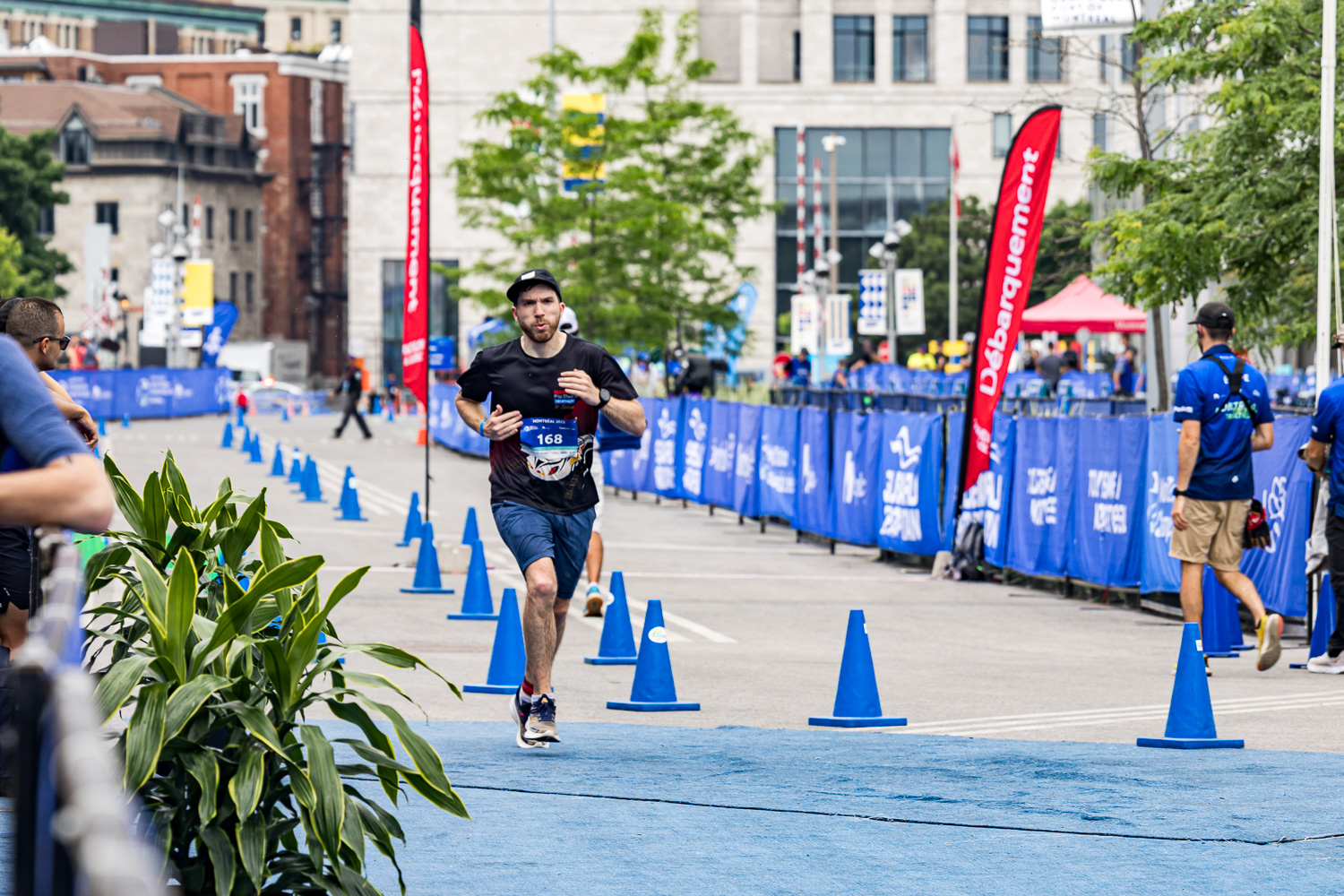
No need for expensive equipment
It's something we find in a lot of activities: we think that if we have 10,000 $ equipment, we'll be better. And even if it's not totally untrue, for your first triathlon, there's no need to invest a fortune.
Choose equipment you're comfortable with. If you have a bike, mountain bike, hybrid bike... and you use it every day to get to work, it will do the trick. There's no need to buy a 5000 $ bike from which you'll get almost no benefit, because you're not going fast enough on it anyway, and you're not using 50 % of its high-tech features.
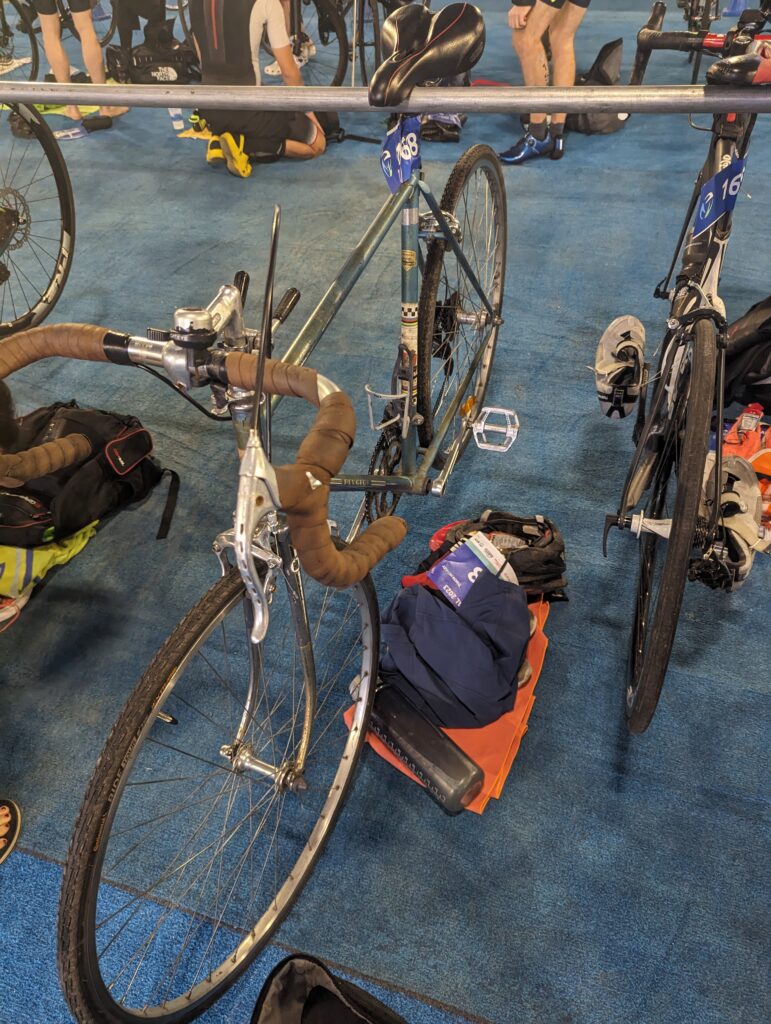
If you don't have anything, think about renting. I didn't have a wetsuit and it wasn't clear whether or not they were going to be compulsory for the race. So I went to the store to rent one. Running in Montreal and it was perfect. You can also take a look at Oké or Triathlo for Quebec. Check with your race organizer, too, as there are sometimes stores that rent equipment directly from the race site.
Last but not least, think about buying used equipment. Many triathletes change their equipment, so it's possible to pick up good stuff for less.
Don't underestimate training.
Don't underestimate training. This is all the more true the longer your race is. For a sprint triathlon, training in my opinion is 50 % of your race, but on an Iron Man, I think training is going to be more like 80 % or even 90 % of your race. And I'm speaking for someone who's already a bit of a sportsman. The less active you are, the more important your training will be to be able to finish your race without injury.
As you can see from my experience during my first Sprint Triathlon, my lack of training was a major drawback, especially in swimming.
Remember to train in all three sports, they all have their importance and you can't really do without one or the other.
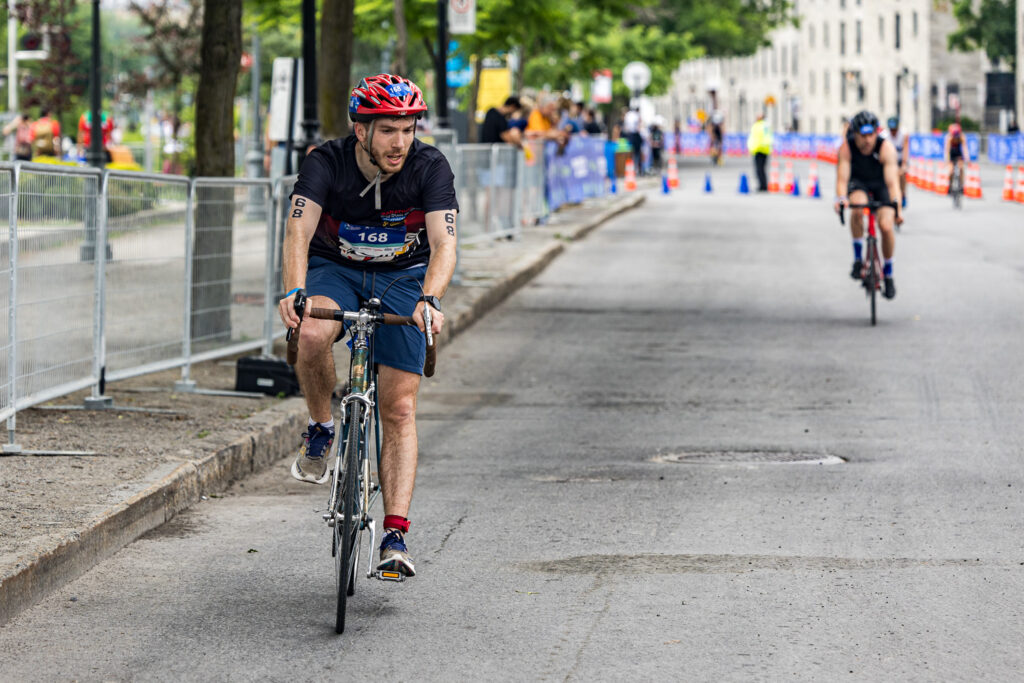
Try to train in conditions as close as possible to what your race will be like. Training in a 25 m pool is fine. But it's quite different from swimming 750 m in open water. In the same way, try running on concrete rather than trails if you're going to run on roads. Also, if possible, train with the same equipment you'll have on race day.
The aim of training is to prepare for an event. If your training is totally different from race conditions, it will be less effective.
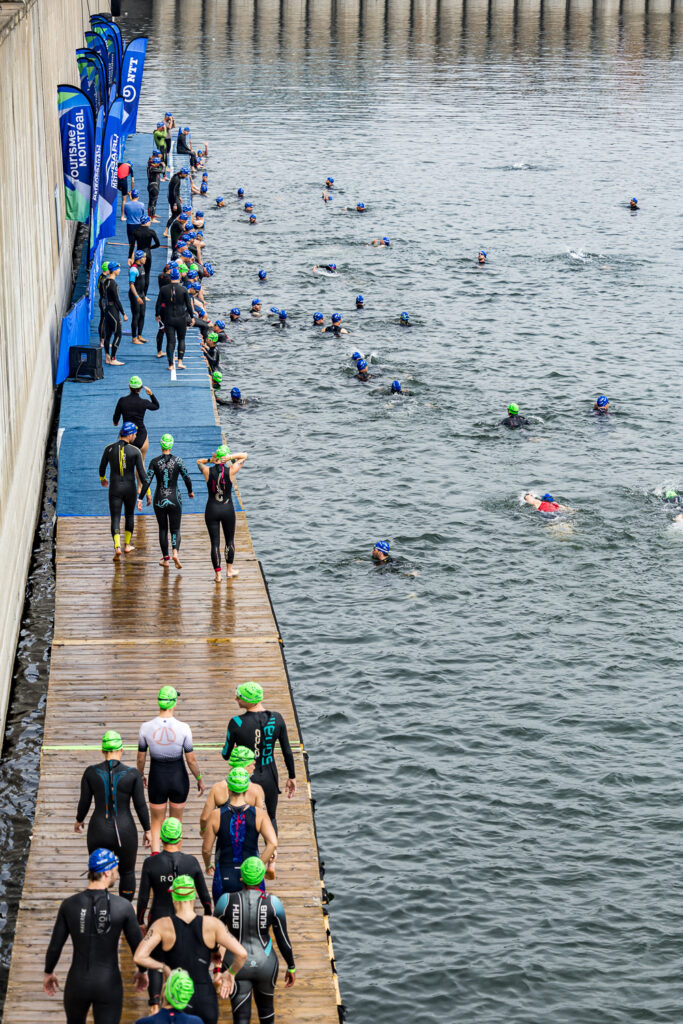
Finally, triathlon is a series of events, so try to train from time to time to do two sports one after the other, such as swimming and running, or cycling and running. This will help you cope better with the fact of having to run after having done another more or less intense effort beforehand.
If you're really motivated, you can also take a look at how to make your transitions, but really don't concentrate on that, as it's still optimization and you're bound to lose time the first few times. But we're talking about a few seconds, or even a few minutes, which isn't very serious for the first time.
Don't go too fast, and don't hesitate to slow down.
This advice applies to many endurance challenges. Whether it's a marathon, mountaineering, triathlon... We're often tempted to set off very quickly with the excitement of the start and the world around us. But if you've set yourself a pace, it's important to stick to it from the start. If you feel good during the race, you'll be able to speed up.
But starting too fast is a guarantee of burning a lot of energy and having to slow down for the rest of the race. I experienced this on my first sprint triathlon during the swim and on my first marathon.
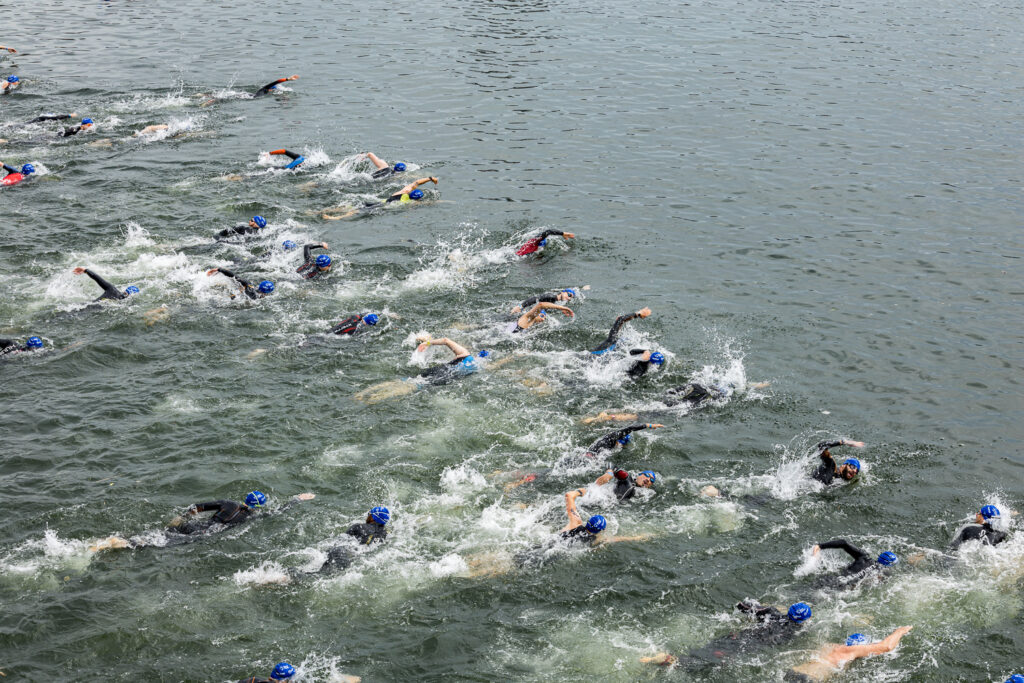
And even if you've set yourself a pace, if you feel that something isn't quite right - lack of energy, pain, etc. - don't hesitate to slow down and see if this improves your condition. Don't hesitate to slow down and see if this improves your condition. Sometimes slowing down is the best, and only, way to finish your race. So much for your dream time: it's better to slow down than to end up unwell or injured and unable to do sport for several weeks and/or months.
The mind is an important part of the race.
You're athletic, you're super-trained, but that doesn't mean you're going to succeed in your race. There's one thing that sometimes gets in the way: the mind.
During the race, it's possible to have moments of doubt when you think you won't be able to finish, as I did during the swim in my first sprint triathlon. It's normal, because during the effort, many things can make you doubt: a loss of bearings, the stress of being behind your time, pain... To avoid giving up, you have to try to stay as positive as possible.

If you have any doubts, don't panic, try to understand the problem and find a solution. Running out of breath? Slow down. Are you in pain? Try changing your position on the bike, switch from crawl to breaststroke, try modifying your stride...
The more you can stay positive during a race, the better your performance will be. It's also much easier to be in this frame of mind if you've trained well, because you're confident in your physical abilities. And even more so if that training was close to race conditions, as you'll find yourself almost on familiar ground. It helps your mental state if you've already been through these or similar situations.
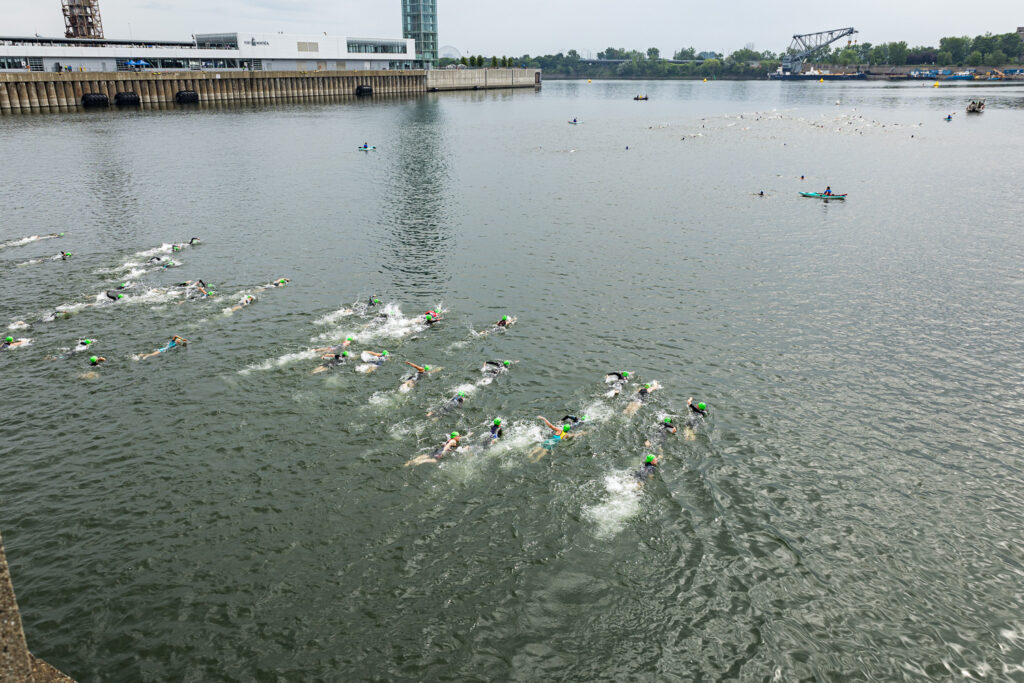
We all agree that over a distance like a sprint triathlon, mental fitness plays a lesser role, but it's still important if you don't want to give up. If you go for longer efforts like an Olympic triathlon or an Ironman, it will become a really decisive element.
Find out about the regulations
In Quebec, I don't know if it's the same internationally, but I think yes, there are rules for a triathlon, lots of rules. Especially if you're just starting out, I strongly recommend that you read your race guide carefully.
Some are very simple and logical. Others, like the rules for overtaking on a bike, or taking suction, are more technical. Especially if you've never swum or cycled competitively before.
Some of them concern your equipment. One of the reasons I borrowed a bike for my first triathlon was that if I'd brought my usual mountain bike, I'd have been disqualified, as the fork wasn't regulation. The temperature of the water in which you're going to swim will most often be the factor that forbids or, on the contrary, obliges you to wear a wetsuit. Nor are you allowed to wear headphones, even when running.
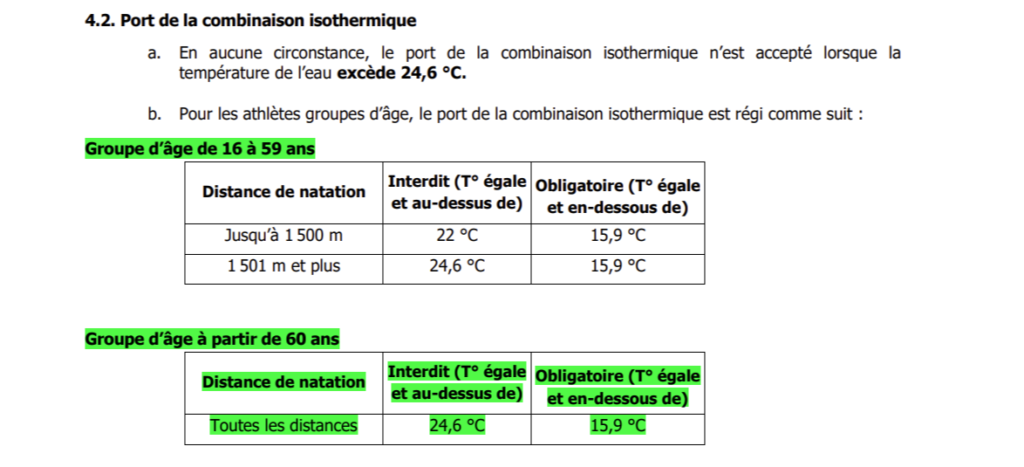
These are details and if it's your first time, it would be silly to get disqualified or receive penalties, there are also rules on how to receive a penalty and "purge" it.
There are also often maximum times for finishing certain events or the whole race. This can often help you to judge your level by seeing whether you fit into these time slots during training.
In short, read the rules! A triathlon is a little more supervised than a half-marathon or marathon, during which the rules are limited to the strict minimum.
For example, headphones and therefore music are forbidden on a triathlon, even during the race! For someone used to running marathons and half-marathons, it was a bit strange to run with nothing in my ears.
Bonus: set yourself several goals
This is something that often helps to make a race more enjoyable, especially the first few times. We tend to go into a race without really knowing what to expect, we set ourselves a time target and on race day we realize we've overestimated our abilities.
To help your mind, I advise you to set yourself several goals, for example:
- I want to finish my race in 1 h 30 or less
- I want to finish my race without ever stopping
- I want to finish my race before time runs out
This way, if you see that the 1:30 time isn't going to be possible, you've got your second goal that you want to meet, and you keep going to the end.
That's typically what I did on the Petit Train du Nord marathon. I was aiming for 3 h 30, I was on schedule and at the 28th kilometer an injury forced me to slow down a lot. If I hadn't set myself the secondary goal of finishing the marathon in under 4 hours, I'd have been a lot slower, I'd probably have given up (and maybe that would have been the wiser decision not to aggravate my injury). But in the end it gave me the motivation and courage to finish, and I ended up doing 3 h 53.
You can also have a secret goal: I want to finish my race in 1h30, but if all goes well I hope to get to 1h20. This can help motivate you to excel if a race goes really well.
And what's your advice?
Note: I'm not a coach or a professional. These tips are drawn from my own experience and have worked for me. tailored to your needss.
As I'm just starting out in this field, I'm curious to hear your opinion. What do you think is the best advice to give to someone wanting to do their first triathlon?










